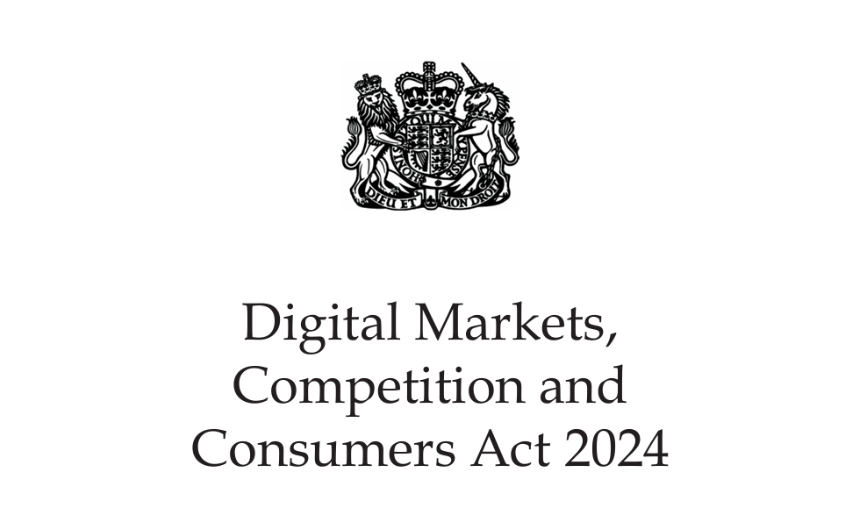
DMCCA MEMBERS' MEETING
Join our members’ meeting on 21 August at 2pm.
At the beginning of July, the Competition and Markets Authority published updated guidance on the pricing transparency provisions of the Digital Markets, Competition and Consumers Act 2024 (DMCCA).
https://connect.cma.gov.uk/consultation-on-price-transparency-guidance
This guidance is of relevance to ticket selling as it indicates a requirement for any per transaction/per basket charges to be included in the headline price for a ticket. This is a significant change to guidance that was in place before the DMCCA.
We have previously pushed back on this with the CMA, both in our written submission earlier in the year and through discussions and roundtables with them. However, they seem to be set in their decision that their proposal for how transaction charges are dealt with is the correct one.
The current consultation is open until 8 September and we will be responding with our views once again. Individual companies may also wish to make their own responses.
In addition, we will hold an online meeting for members on 21 August at 2pm to talk through the CMA’s proposed guidance and your responses to that. This will help inform our submission to the consultation, as well as preparing members for the likelihood that the CMA will not change its position.
Below is a summary of the key issues discussed and the CMA's responses:
- Overreach on Mandatory Charges
The CMA's interpretation seems to go further than the legislation. We have argued that many mandatory charges (e.g. per-order fees) cannot be calculated at the point of initial product display, as the total price depends on customer choices. The CMA has disagreed, stating that even a single item (e.g. one ticket) has a calculable price and that businesses must adapt. They have suggested dissatisfaction stems from charges making products appear less attractive, not from genuine complexity. - Inconsistent Treatment of Calculable Charges
We have highlighted inconsistencies in the guidance – particularly around a customer’s ability to calculate total charges. The CMA acknowledged that customers are expected to be reasonably informed, yet still maintain that most charges (even per-order ones) should be included upfront. - Contradictory Approach to Per-Order Charges
While the CMA accepts that per-person or per-weight pricing can be uncertain, they do not extend this logic to per-order or per-transaction charges. We have argued that these are just as variable and shouldn't always be rolled into individual ticket prices. The CMA seems to be upholding their position on this. - Unrealistic Expectations in Pricing Presentation
We stressed that including per-order charges in the headline price is misleading and unrealistic – the final amount paid by customers often differs significantly. The CMA don't accept this and have said that it is a business concern, not a legal one. - Confusion Around 'Early Stage' Advertising
There has been a lack of clarity from the CMA on what qualifies as ‘early stage’ advertising. They have suggested a homepage may qualify, but have provided no concrete guidance on parameters. - Burden of Displaying Charges at Every Step
We have objected to the idea that each step of the purchase journey constitutes an ‘invitation to purchase’ requiring repeated charge disclosures. The CMA has not yet engaged on this point but have maintained that wherever a price is shown, full information should be provided. - Narrow Interpretation of ‘Equal Prominence’
While the legislation allows for certain non-calculable charges to be shown with ‘equal prominence’, the CMA appears to interpret this very restrictively. We have not yet discussed this issue in detail, but the CMA believes that such charges are usually calculable for tickets. - Unrealistic Basket and Display Expectations
The CMA’s draft guidance suggests members may need both constant visibility of the basket and a floating display of transaction fees. We have argued that this goes beyond what the law requires and creates unnecessary technical and financial burdens for ticket sellers and system suppliers. The CMA have said that the guidance only provides an illustrative example, but they have not shown any sympathy for the technical or financial challenges faced by businesses.

NEW STAR COUNCIL
Thanks to all those who voted in the 2025 STAR Council election. The following candidates were elected or re-elected for a three year term:
Emily Childs - Head of Community, Line-Up
Danny Hannaford - Senior Director Client Product Solutions, Ticketmaster
Lucy Levitt - Head of Business Development, Kilimanjaro Live
Rachel Miller - Director of Audiences, Sales and Marketing, Lowry
Rebecca Molloy - Business Intelligence Analyst (re-elected)
Jessie Nesbit - Head of Global Ticketing Operations, Tickets for Good
They join continuing Council members, Kelsie Adams (ATG), Veronica Kakuba (The O2) and Paul Newman (AXS) as well as our re-elected Chair, Andrew Sharp.
Our sincere thanks to everyone who stood for election.





AGM & TICKETING SEMINAR
On 16 July, STAR returned to the Lilian Baylis Studio at Sadler’s Wells Theatre for our annual seminar and AGM. If you were unable to make it, you can catch up with the content by clicking on the links below.
Our programme included:
Accessible Ticketing presented by Lara Marshall and Joy Addo from Attitude is Everything.
This presentation provides actionable insights into creating inclusive ticketing systems for disabled customers, looking at: Challenges in Current Systems, Inclusive Ticketing, Best Practices for Accessibility, and Pre-Event Communications.
Beyond the Barcode: The Future of Digital Ticketing moderated by Danny Hannaford from Ticketmaster, alongside panellists, Matthew Breen from Line-Up, Jo Jablonska from The O2, and Jonny White from Ticket Tailor.
As digital tickets move beyond the barcode, leading voices from across the industry dissect the next wave of innovation. They map where each sector— theatre, festivals, live music and sport— sits on the maturity curve, confront the stubborn barriers holding full adoption back, and share frank stories of success, cost and collaboration.
Dispute Roulette presented by members of the STAR team: Jonathan Brown, Megan Conman and Helen Chambers.
The return of this popular quick-fire round where the STAR team talk through real-life, challenging dispute scenarios and, using the sli.do app for your responses, finds out how their audience think it might be best to resolve them.
Major On-Sales: Pricing, Queues & Anti-Tout Tactics moderated by Paul Newman from AXS, alongside panellists, Ropo Akin from Cokobar, Robin Cantrill-Fenwick from Baker Richards, and Veronica Kakuba from The O2.
When doors open on a high-demand UK tour or West End run, the first minutes can define both revenue and reputation. This frank discussion brought together promoters, venue ticketing leads and ticket agents to unpack what really happens behind the ‘Buy Now’ button.
Motivating People… The Greatest Management Mystery of All presented by Mandy Cresswell Phillips
This session lifted the veil on the power of understanding long and short-term motivation and how, as managers, we really need to be able to tell the difference and act upon our findings.

